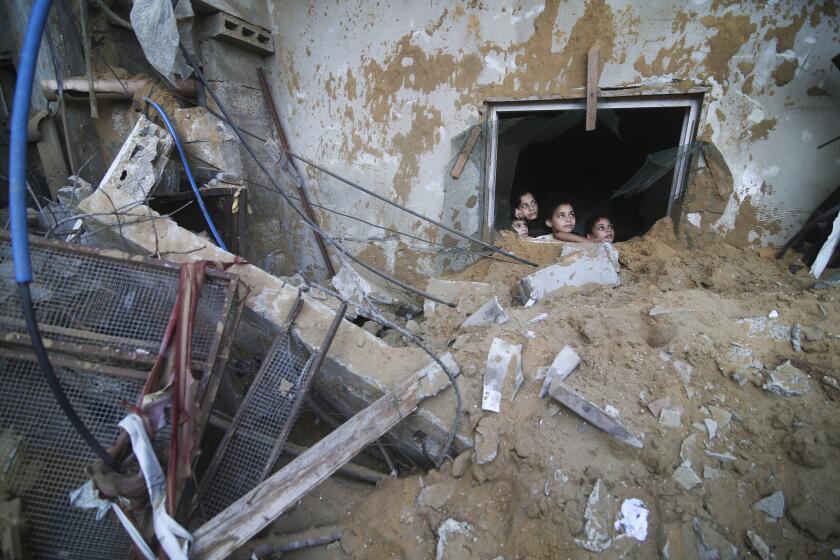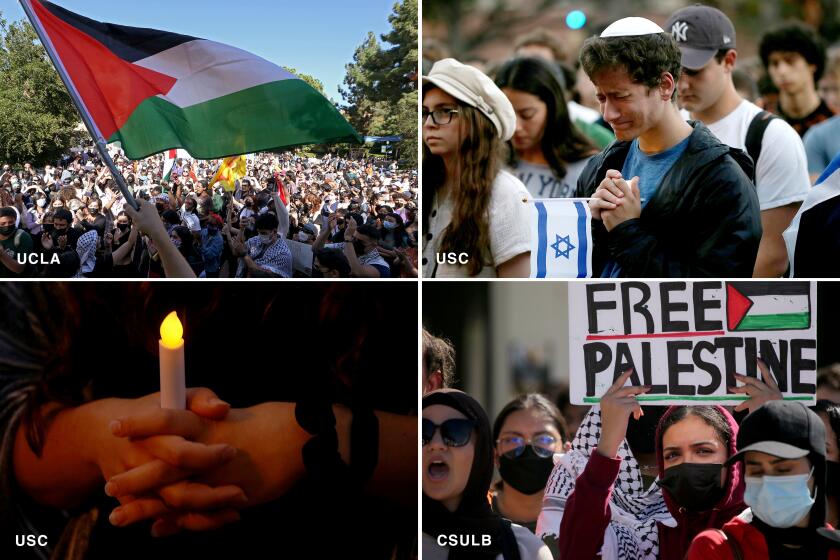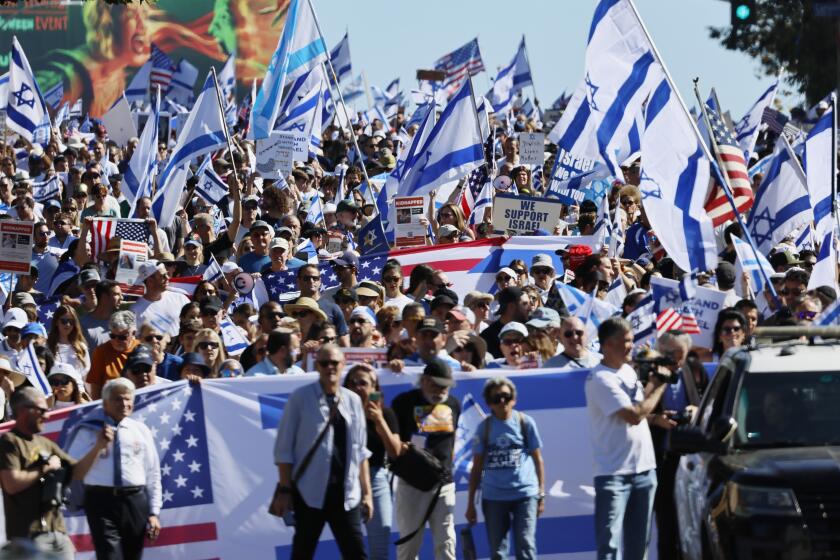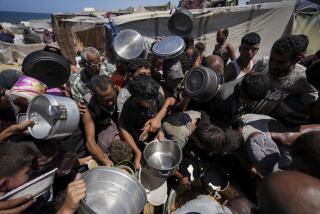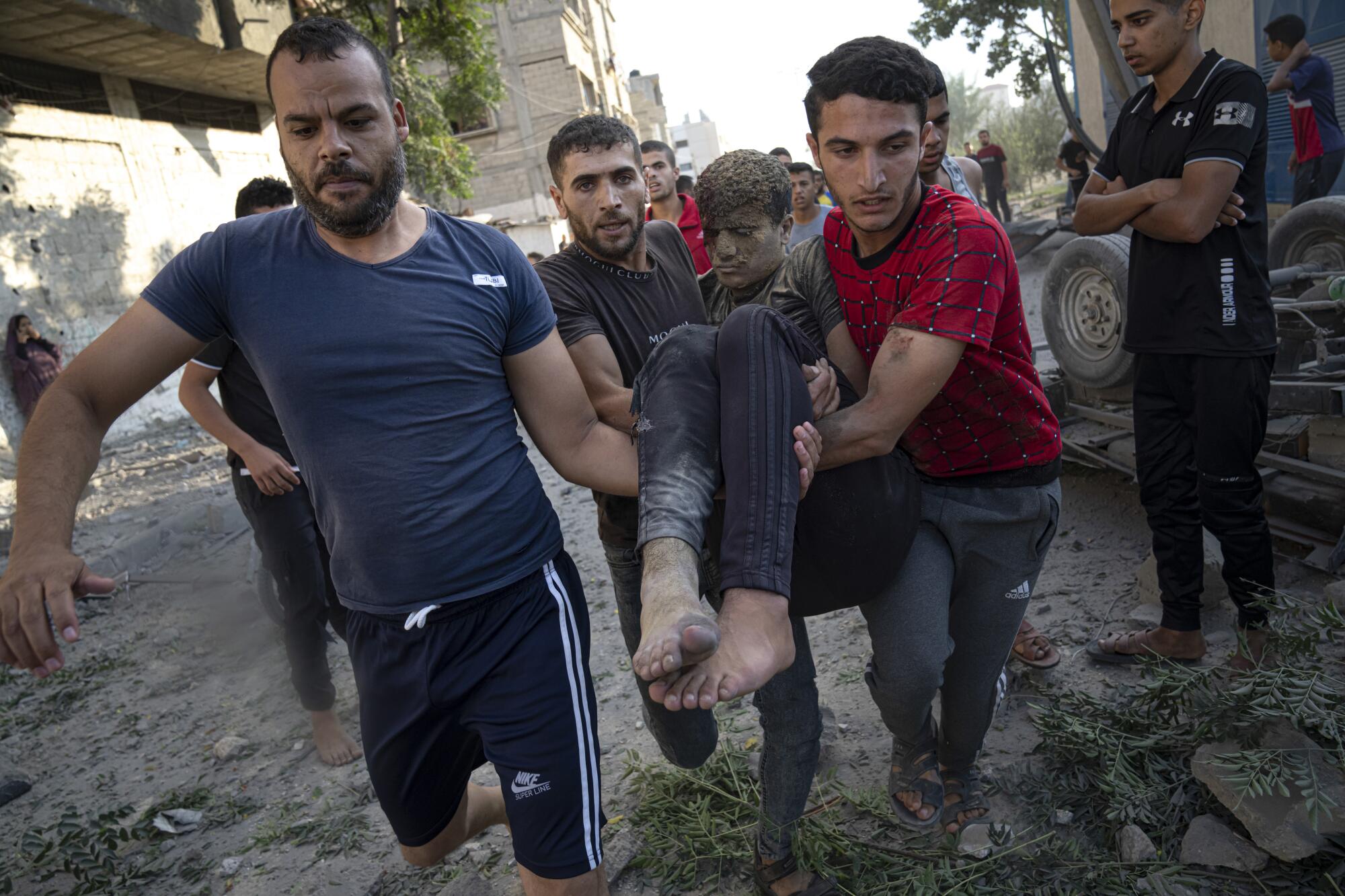
RAFAH, Gaza Strip — Truckloads of aid idled at Egypt’s border with Gaza, barred from entry, as residents and humanitarian groups pleaded Monday for water, food and fuel for generators, saying the tiny Palestinian territory sealed off by Israel after last week’s rampage by Hamas was near total collapse.
As the situation deteriorates in Gaza, President Biden will travel to Israel on Wednesday to signal White House support for the country and amid fears that Israel’s war with Hamas could spread to other countries. U.S. Secretary of State Antony J. Blinken announced the trip early Tuesday in Tel Aviv following hours of talks with Israeli officials, and an invitation from Prime Minister Benjamin Netanyahu.
Hospitals were on the verge of losing electricity, threatening the lives of thousands of patients, and hundreds of thousands of Palestinians displaced from their homes searched for bread. Israel maintained punishing airstrikes across Gaza as a ground invasion loomed, while Hamas militants kept up a barrage of rocket attacks — and tensions mounted near the Israel-Lebanon border.
More than a week after Israel cut off entry of any supplies, all eyes were on the Rafah crossing, Gaza’s only connection to Egypt. Mediators were trying to reach a cease-fire that would let in aid and let out trapped foreigners. Israeli airstrikes forced the crossing to shut down last week, and local media reported Israel struck the crossing again Monday.
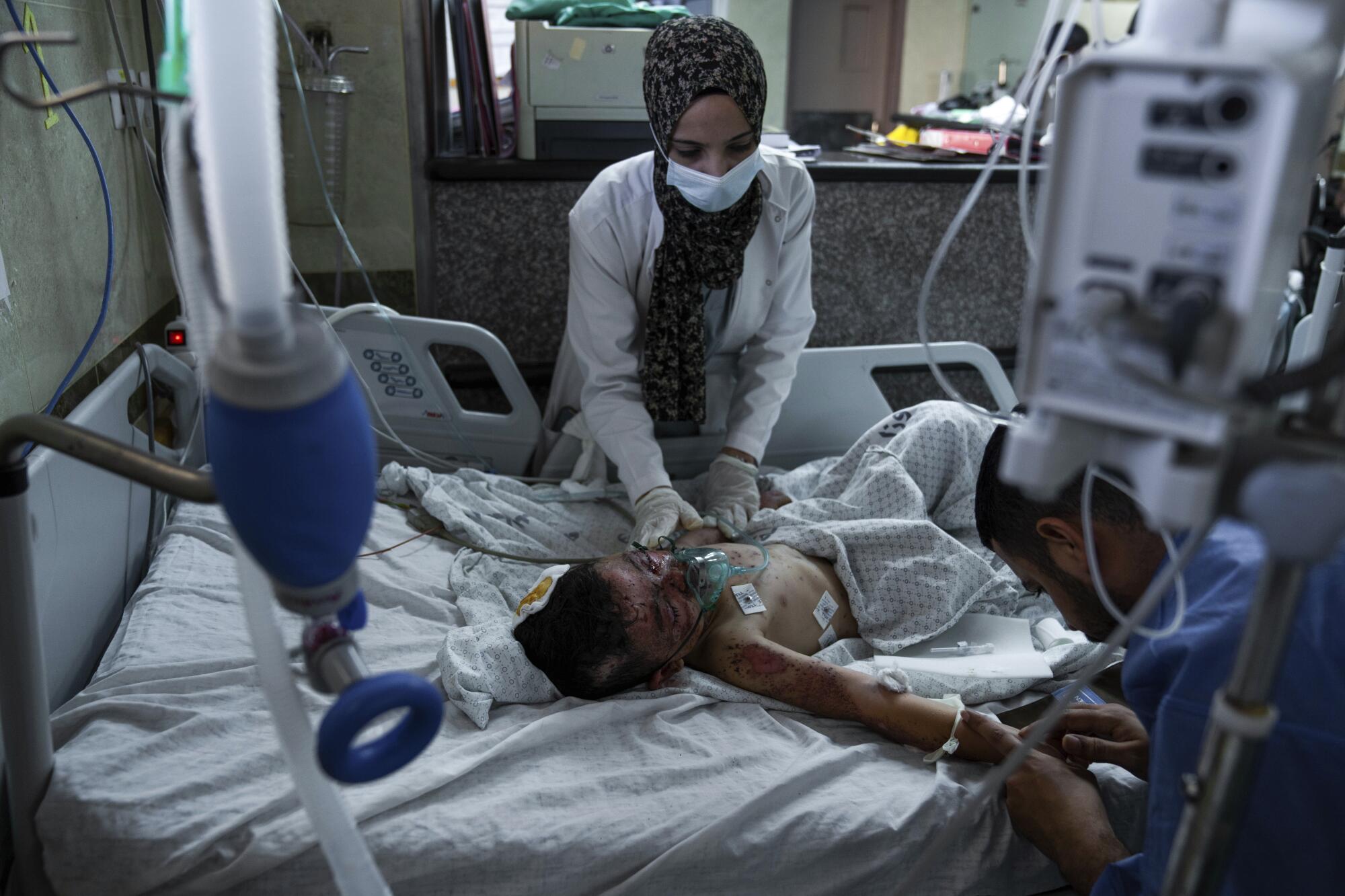
Blinken said the U.S. and Israel had agreed to develop a plan to enable humanitarian aid to reach civilians in Gaza. There were few details, but the plan would include “the possibility of creating areas to help keep civilians out of harm’s way.”
“We share Israel’s concern that Hamas may seize or destroy aid entering Gaza or otherwise prevent it from reaching the people who need it,” Blinken said.
Israel evacuated towns near its northern border with Lebanon, where the military has exchanged fire repeatedly with the Iranian-backed Hezbollah group.
Speaking to the Israeli Knesset, Netanyahu warned Iran and Hezbollah, “Don’t test us in the north. Don’t make the mistake of the past. Today, the price you will pay will be far heavier,” referring to Israel’s 2006 war with Hezbollah, which operates out of Lebanon.
Hundreds of Palestinian Americans are reportedly stranded in Gaza, frantically searching for ways to flee before Israel’s expected ground assault.
Soon after he spoke, the Knesset floor was evacuated as rockets headed toward Jerusalem. Sirens in Tel Aviv warning of incoming rockets prompted U.S. and Israeli officials to take shelter in a bunker, officials said.
This has become the deadliest of the five Gaza wars for both sides. At least 2,778 have been killed and 9,700 wounded in Gaza, according to the Health Ministry there. More than 1,400 Israelis have been killed, the vast majority civilians massacred in Hamas’ Oct. 7 assault. The Israeli military said Monday that at least 199 hostages were taken into Gaza, more than previously estimated. Hamas said Monday it was holding 200 to 250 hostages, including foreigners whom it said it would free when it was feasible.
The head of Israel’s Shin Bet security service, in charge of monitoring militant groups, took responsibility for failing to avert Hamas’ surprise attack. As agency head, “the responsibility for that is on me,” Ronen Bar said.
“There will be time for investigation — now is a time for war,” he wrote in a letter to Shin Bet workers and their families.
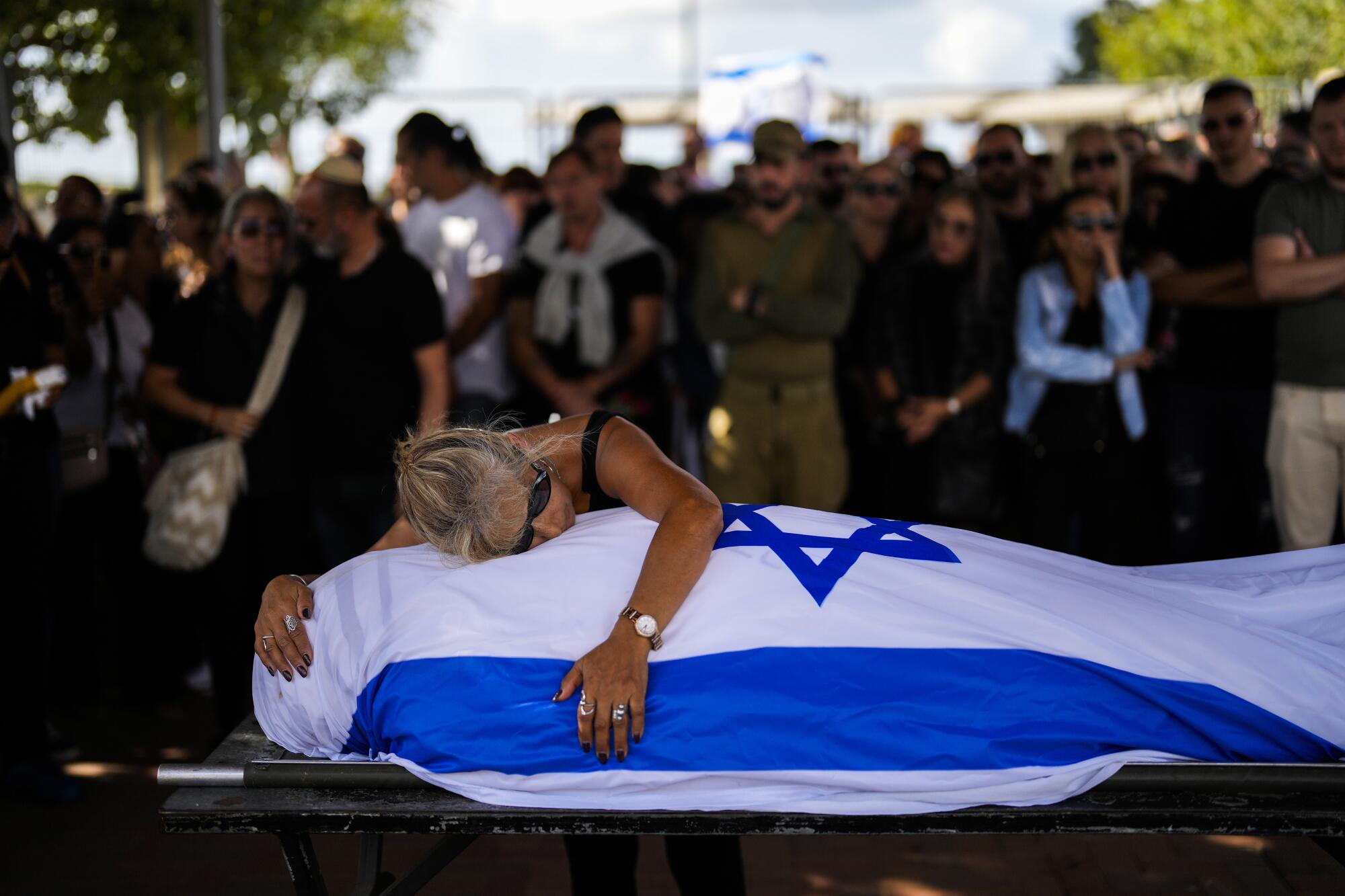
The combination of airstrikes, dwindling supplies and Israel’s mass evacuation order for the north of the Gaza Strip has thrown the tiny territory’s 2.3 million people into upheaval and increasing desperation. More than 1 million have fled their homes, and 60% of them are now in the approximately 8-square-mile area south of the evacuation zone, according to the U.N.
The Israeli military says it is trying to clear away civilians for their safety ahead of a major campaign against Hamas in Gaza’s north, where it says the militants have extensive networks of tunnels and rocket launchers. Much of Hamas’ military infrastructure is in residential areas.
Those fleeing northern Gaza still faced airstrikes in the south. Before dawn Monday, a strike in the town of Rafah collapsed a building sheltering three families who had evacuated from Gaza City. At least 12 people were killed and nine others remained buried under rubble, survivors from the families said. The strike reduced the house to a vast crater blanketed with wreckage.
Hospitals are expected to run out of generator fuel in the next 24 hours, meaning lifesaving equipment like incubators and ventilators will stop functioning, the U.N. said. Thousands of patients’ lives were at risk, the U.N. said.
College campuses are supposed to be bastions of intellectual discourse and debate, but the war in Gaza underscores tense narratives and little if any interchange between students.
People grew increasingly desperate in their search for food and water. With taps dry, many have resorted to drinking dirty or sewage-filled water, risking the spread of disease.
More than 400,000 displaced people in the south crowded into schools and other facilities of the U.N. agency for Palestinians, UNRWA. But the agency can’t provide them any supplies. UNRWA said it has only 1 liter of water a day for each of its staff members trapped in the territory.
“Gaza is running out of water, and Gaza is running out of life,” said UNRWA chief Philippe Lazzarini, calling for a lifting of the siege. “We need this now.”
The few operating bakeries had long snaking lines of people. Ahmad Salah in the city of Deir al Balah said he waited 10 hours to get 2 pounds of bread to feed about 25 family members.
Jewish-Palestinian couples have been tested after the deadliest attack on Israel in 50 years. Some work through it, others fear they won’t overcome it.
In northern Gaza, unknown numbers remained, either unwilling or unable to leave.
UNRWA said 170,000 people were sheltering at its schools in the north when the order to leave came. But it couldn’t evacuate them and doesn’t know if they remained. More than 40,000 have crowded in the grounds of Gaza City’s Shifa Hospital and surrounding streets, hoping it will be safe from bombardment.
Hamas urged people to ignore the evacuation order. The Israeli military on Sunday released photos it said showed a Hamas roadblock preventing traffic from moving south.
Doctors and many hospital staff have refused to evacuate, saying it would mean death for critically ill patients and newborns on ventilators.
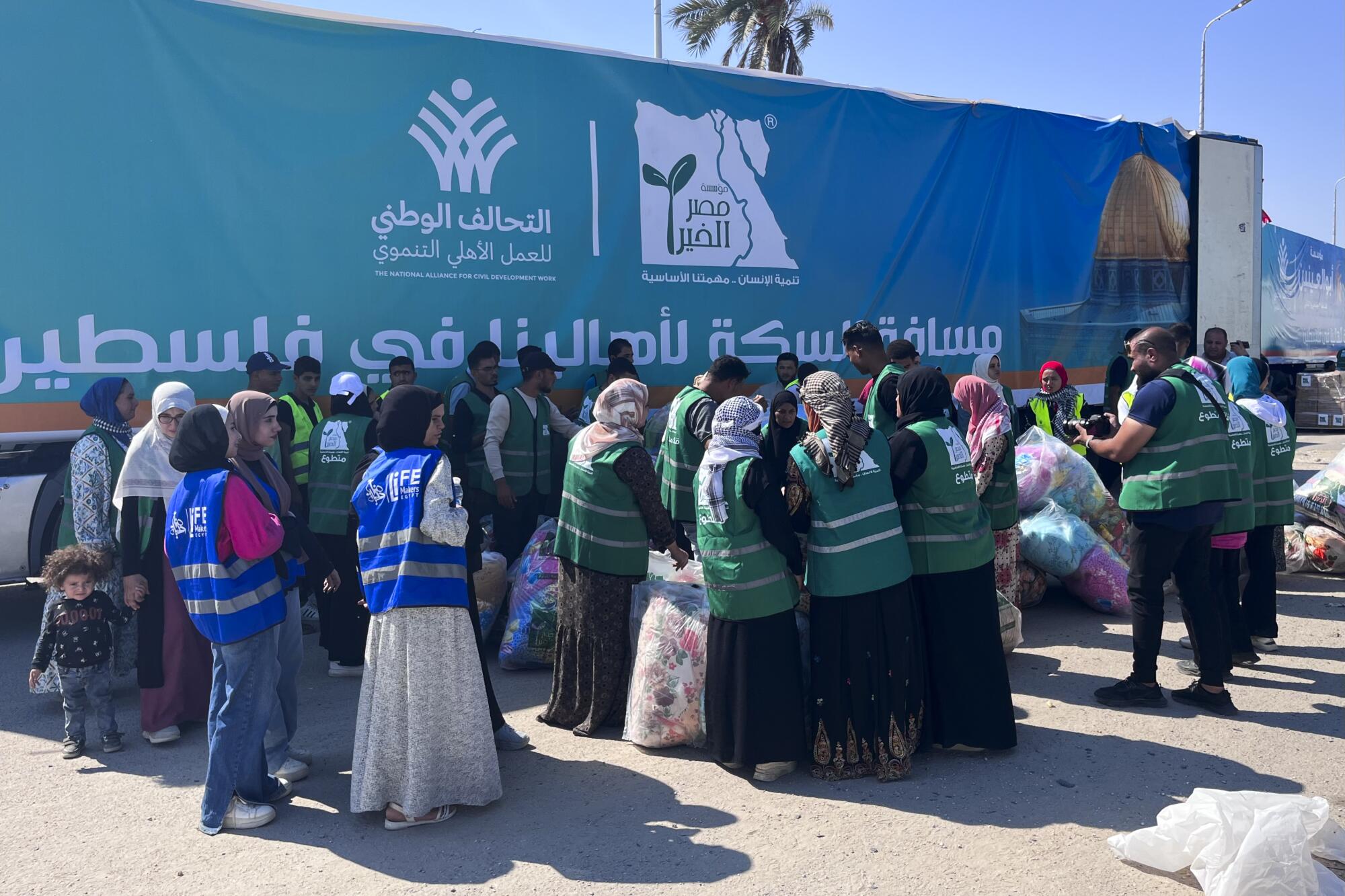
The medical aid group Doctors Without Borders said many of its personnel decided to stay in the north to treat the wounded. They had run out of painkillers, and staff reported “wounded screaming in pain,” it said.
Israel has said the siege won’t be lifted until Hamas releases all the captives. The country’s water ministry said water had been restored at one “specific point” in Gaza, outside the southern town of Khan Yunis, but aid workers in Gaza said they had not yet seen evidence the water was back.
On the Gaza side of the Rafah crossing, crowds of Palestinians with dual citizenship waited anxiously, sitting on suitcases or crouched on the floor, some comforting crying infants.
“They are supposed to be a developed country, talking about human rights all the time,” Shurouq Alkhazendar, whose two kids are American citizens, said of the United States. “You should protect your citizens first, not leave them all alone suffering and being humiliated in front of the crossing.”
Marchers of all ages took part in Sunday’s demonstration in L.A., with many carrying photos of people taken hostage during Hamas’ Oct. 7 attack on Israel.
After increasing cross-border exchanges with Hezbollah in the north, the Israeli military ordered residents to evacuate 28 communities within 1.2 miles of the Lebanese border.
“Israel is ready to operate on two fronts, and even more,” said Rear Adm. Daniel Hagari, a military spokesman.
Hezbollah released video showing snipers shooting out cameras on several Israeli army posts along the border, apparently to prevent Israel from monitoring movements on the Lebanese side.
The U.S. government began evacuating some 2,500 American citizens by ship from the Israeli port city of Haifa to Cyprus. Commercial airlines have largely stopped flying into Israel’s Ben Gurion International Airport.
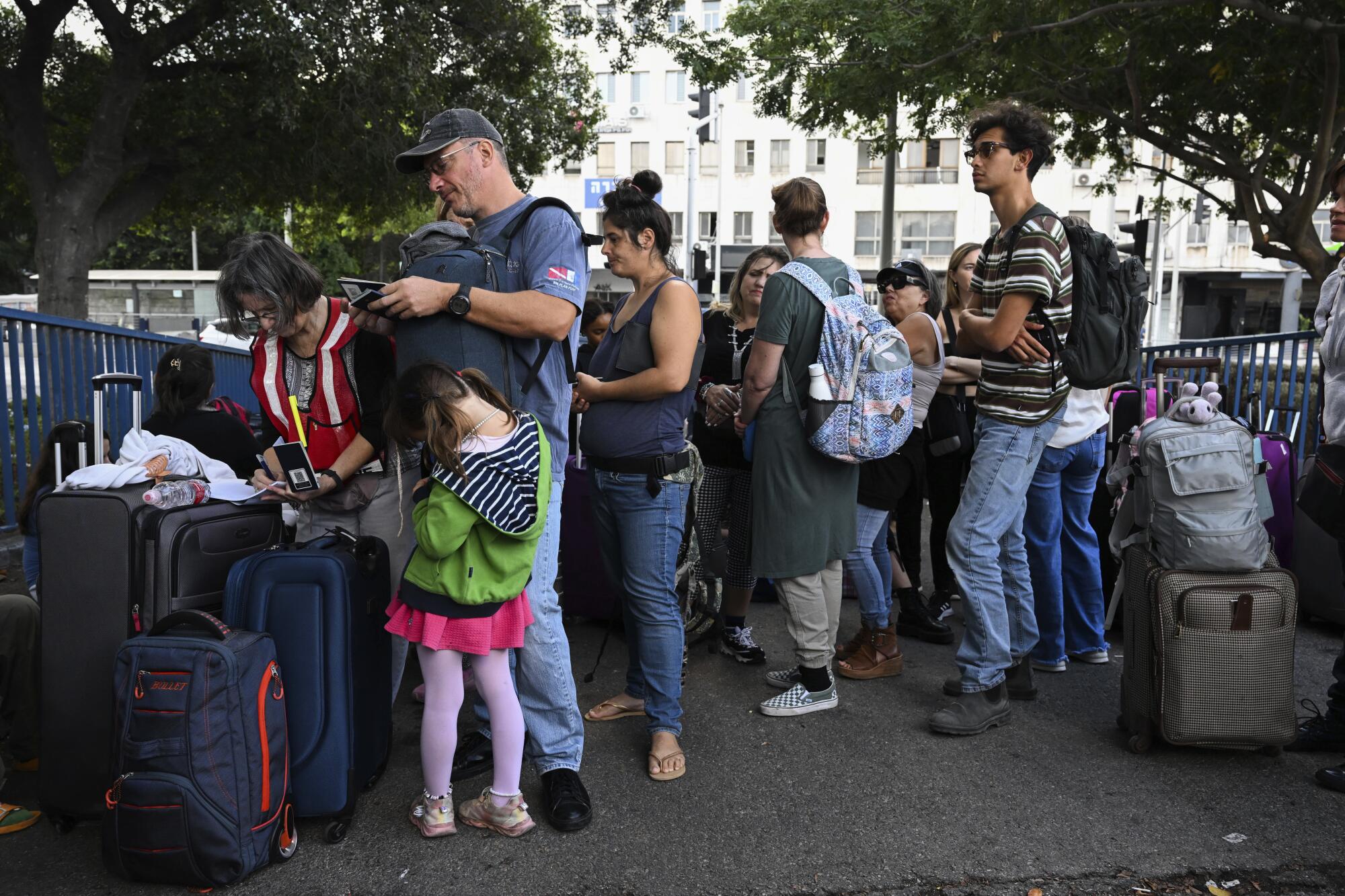
Blinken returned to Israel for a second time in less than a week after a six-country tour through Arab nations aimed at preventing the fighting from igniting a broader conflict.
Israeli forces, supported by a growing deployment of U.S. warships in the region and the call-up of some 360,000 reservists, have positioned themselves along Gaza’s border and drilled for what Israel said would be a broad campaign to dismantle Hamas. Israel said it has already struck dozens of military targets, including command centers and rocket launchers, and also killed Hamas commanders.
Kullab reported from Baghdad. Krauss reported from Jerusalem. Associated Press writers Julia Frankel and Amy Teibel in Jerusalem, Abby Sewell in Beirut and Samy Magdy in Cairo contributed to this report.
More to Read
Sign up for Essential California
The most important California stories and recommendations in your inbox every morning.
You may occasionally receive promotional content from the Los Angeles Times.
